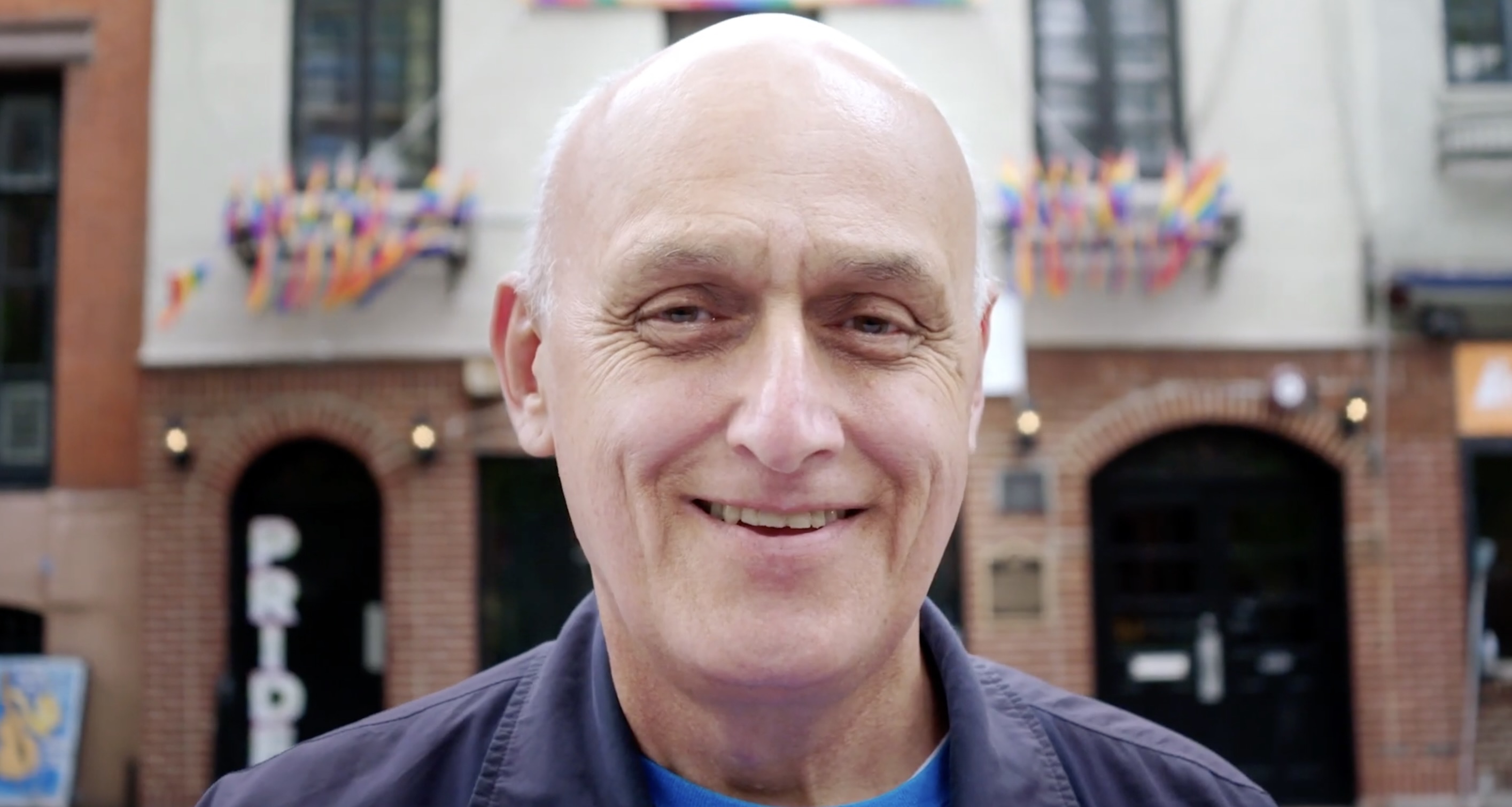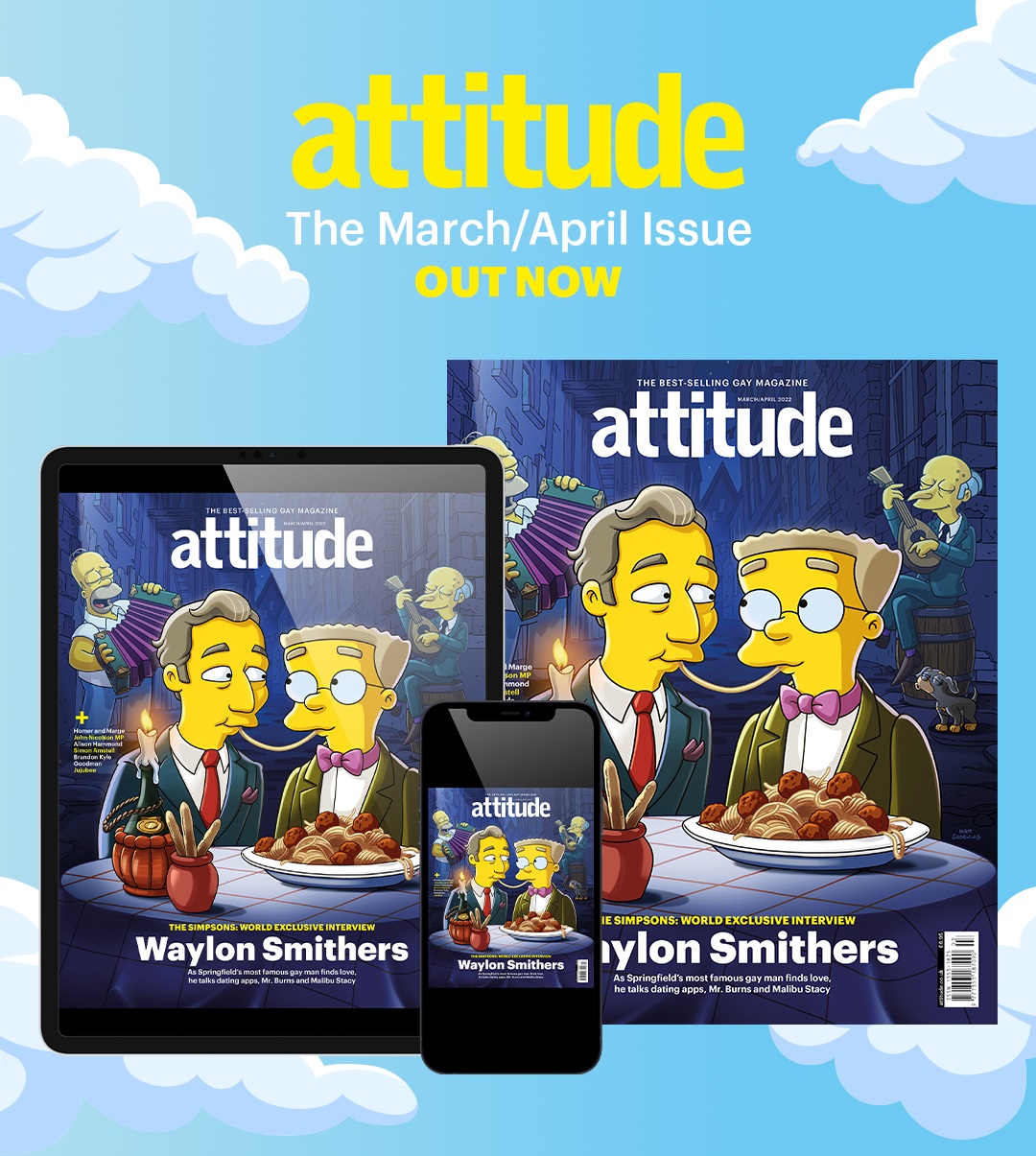Stonewall Riots veteran Joe Negrelli: ‘All hell broke loose – they couldn’t control us’
Joe Negrelli, 72, tells Attitude about his experience of the Stonewall Riots - and gay life before and after the infamous gay fightback.

Words: Joe Negrelli as told to Alastair James; pictures: Wiki and SAGE
Growing up in rural Connecticut in the 1950s I was surrounded by people who were a little stuffy. They had certain views about people who were different, shall we say? While I was more accustomed to hearing the ‘f-word’ and ‘queer’ (the word ‘gay’ was not really used then back then) I knew I wasn’t like the other boys from around age 5 or 6.
Moving to what was once called Little Italy (now Soho) in New York City in 1957, my world opened up massively. I was like a kid in a candy store! Back home things closed at about six o’clock but in New York, things stayed open 24 hours a day.
It was absolutely wonderful! Rather than having a chicken or a duck to play with, or even a cow – the goats were not so friendly – I had people to play with and that was absolutely fantastic. And there were cars and people and there were loads of things, there were smells, sounds, everything was just tremendously different than what I was used to.
In post-war NYC my parents had to work hard, for 10-12 hours a day meaning there was little supervision at home. This gave me some free rein to explore my new home. Being surrounded by the bustling metropolitan of Manhattan I began to encounter people I hadn’t had a chance to meet before. It was around my mid-teens when I realised I was gay.
I began meeting other queer people in places like Washington Square Park and it was through the grapevine of this new community I’d found for myself that I heard about the Stonewall Inn. I can’t remember when I first went into the historic site but I can clearly remember what it was like crossing the threshold for the first time.

Washington Square Park (Photo: Wiki)
It was heaven. In fact, to say it was heaven would be an understatement. They were playing music that I liked, not the old stuff. It was the 1960s, what can I tell you? It was all about rock and roll!
Stonewall was the only place at the time where you could dance with another man, you couldn’t dance with another man elsewhere, you could only drink with other men. And I just found the idea of being able to dance with another man, a pleasure many take for granted today, fascinating. It probably sounds comical now, but at Stonewall they allowed you to kiss and to hold hands with another man. It was freedom rarely found elsewhere back then.
And as heavenly as it was, Stonewall was also rather smelly. The lack of air conditioning – which wasn’t as widespread as it is now – and the ability to smoke indoors created this oppressive fog that even as a teenager I found hard to cope with. Stonewall was also the place I’d say I learned to drink properly. Before, I’d only had beer or wine, but here I was treated to drinks such as a Tom Collins and a variety of other delicious cocktails.
Sadly, my parents died in a car accident when I was 17, which was extremely devastating. For about 43 years after I was estranged from the rest of my family, not even knowing where they lived. We’ve reconnected more recently and I’m speaking to some of them again.
However, back then, I had my chosen family around me. I was part of a group called the ‘Flaming F*****s’. It was a loosely organised group, more like a family. People shared their resources, their clothes, everything with one another.

Stonewall Riots (Photo: Wiki)
In the 60s, police raids weren’t uncommon. There wasn’t a lot of hope generally, although there was the Civil Rights movement, the anti-war movements, and the Women’s liberation movement all going on.
On the night of 28 June 1969, I’d gone to Stonewall for a simple, normal night out. It was a warm evening, like, really very hot. There was nothing to suggest it would be anything other than a normal night. I was 17, and I just wanted to dance. As I arrived (fashionably late – at around 11pm) and I remember thinking, ‘Oh, this is going to be a great night to dance.’ Walking in I was met with the familiar sights and smells. Even with the air conditioning, they couldn’t get rid of that smoke and the smell of stale beer that hung over the bar.
Taking a break I went across the street and was talking to some friends when the police arrived.
Then all hell broke loose. Windows were broken, cars were set alight, rocks were thrown at police. After the first bottle was thrown a policeman asked whoever threw the bottle of come forward to be arrested. He repeated himself three times before someone threw a garbage can which missed him. The police were tremendously flabbergasted. They ran into the bar and barricaded themselves in. And then someone broke a window, and someone started a fire on the windowsill. These weren’t serious attempts to burn the place down. It was just an act of defiance.
And then the next thing I know is that the tactical police force came and tried to restore order but by that point, the crowd had grown from 200 people to about 1,000 people in a very short period of time. And they couldn’t control us.
After the riots, there really was a sudden shift in people’s attitudes. Shops that previously refused to sell even a pack of gum to a gay man were welcoming them in with open arms. People were even baking cookies!

The Stonewall Inn (Photo: Wiki)
53 years on from that momentous night and things are, thankfully, very different for the LGBTQ community. There are a greater number of openly LGBTQ athletes, politicians, and public figures for people to look up to. LGBTQ people can get married and hold employment without too much difficulty, even in places that are more right-wing and more rural.
However, many people are still isolated and even here in New York City, there are communities where if you’re a smart gay person, you would know not to hold hands with someone. I also think it’s so sad what’s happening to the trans community. Everybody should have the right to be who they are. People do need to speak up about injustices that exist to keep things moving forwards and support the LGBTQ community.
I like to walk around neighbourhoods and I see all the Pride flags that are much more prominent than they ever would have been. The other day I passed a business that had a sign reading “we welcome everybody” and had the Pride flag alongside it. I thought, ‘My goodness, 50 years ago, your store window would have been broken for having that. So that is, for me, is wonderful.

Joe Negrelli (Photo: SAGE)
I now work with SAGE – a group that advocates for LGBTQ elders – which gives people a community. We take care of people, have book clubs and offer educational courses and we also provide good food for people who need it.
I do think that LGBTQ people today don’t know what the struggle was like back in 1969. They don’t know what it’s like to be refused to buy a newspaper. They don’t know what it’s like to be discriminated against in housing; to come home one day and find your landlord has evicted you because you’re gay.
So, I think that younger people definitely need an education. There’s a whole group of people in my family that I didn’t know for a long time. And now that I do, and the ones who want to talk to me do talk to me and the ones who don’t want to talk to me, they don’t have, but they at least they know me. That I’m alive and exist.
I don’t want anyone to have to experience that.
Hear more of Joe’s story here:
Attitude’s new-look March/April issue is out now.

